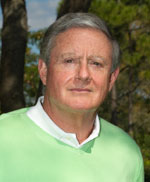 |
The most important news story of last week may have slipped under the radar of anyone who wasn’t paying attention to Washington and the financial markets.
But make no mistake — it’s a game changer for the Federal Reserve and the future of monetary policy in the U.S.
Bloomberg News on Thursday picked up a story that had first appeared the day before on Israel’s Channel 2 TV, reporting that Stanley Fischer would be nominated to become the next vice chairman of the Fed. This caused some initial confusion — some Fed watchers may have wondered if the news outlets meant Richard Fisher, the president of the Fed Bank of Dallas. That would certainly signal a change in direction, since he has been an outspoken critic of quantitative easing, a policy championed by the incoming Federal Reserve chief, Janet Yellen.
 |
| Stanley FischerStanley Fischer’s views are not nearly as market-friendly as the Bernanke/Yellen combo. |
But the similarities end at the name. Stanley Fischer is a Keynesian through and through. He was a professor at MIT, the chief economist of the World Bank, a top official at the International Monetary Fund, and the head of the Bank of Israel. His former students include Ben Bernanke, European Central Bank chief Mario Draghi and Larry Summers, the former head of President Obama’s National Economic Council.
An Impressive Resume
His nomination hasn’t been officially announced yet, but if Fischer has been tapped as the No. 2 at the Fed, it’s largely because of his experience in dealing with financial crises. As managing deputy director at the IMF, he engineered the rescue of Mexico in the so-called Tequila crisis of 1994, arranged bailouts for Korea, Thailand, Malaysia and Indonesia during the 1997-98 debt crisis in Southeast Asia, and helped Russia through its debt default in 1999.
After leaving the IMF to head the Bank of Israel, his list of accomplishments grew. Fischer tripled the size of Israel’s foreign exchange reserves to a record $75 billion. He spearheaded an effort to tackle income inequality, after realizing that 41 percent of the market value of the country’s public companies was controlled by only 10 ultra-wealthy Israelis. This focus on inequality may sound familiar if you’ve been listening to Obama’s recent speeches.
But even more pertinent to the situation in the U.S. today is Fischer’s experience with quantitative easing, or QE. At the start of 2009, he implemented a monetary-easing plan but quickly ended it, calling QE “a bad habit.” After halting the program, Fischer proceeded to gradually increase the overnight loan rate by 175 basis points to 3.25 percent. And it did not trigger a selloff in the Israeli stock market. His success throughout his career earned him the title of Central Bank Chief of the Year in 2010, from Euromoney magazine.
Is Past Prologue for Fischer at the Fed?
So can Fischer work the same magic in the U.S., as he tries to extricate the Federal Reserve from its own massive quantitative-easing program? It’s likely he will try to do just that — in an interview with The Wall Street Journal, he called quantitative easing “dangerous, but necessary.” He stressed that the Fed’s QE efforts were extraordinary, and not without risks. And he noted, “precisely how to get out of QE, at what speed to get out, is a much harder thing to measure and calculate.”
Fischer has also been a critic of the Fed’s new practice of tool-forward guidance. So while Stanley Fischer is certainly no Richard Fisher, he will be an extremely influential voice, tempering Yellen’s accommodative inclinations. That, in and of itself, changes the game at the Fed.
Will Fischer’s Appointment End the Stock Market Rally?
So how will the market react to the appointment? Investors’ first reaction was negative — the news was one of the main reasons the S&P 500 dropped about 1.5 percent over the final three days of last week. Everyone recognizes that the current bull market is largely due to the liquidity injected by QE. So over the next few weeks, we could see further losses, as investors realize that Stanley Fischer’s views are not nearly as market-friendly as the Bernanke/Yellen combo.
In fact, some institutional and hedge fund investors are already suggesting that the Fed may begin tapering earlier than the markets expect — possibly as soon as the next FOMC meeting this week.
It’s more likely that the Fed will wait until Yellen officially takes the reins in January. But one thing is certain: If Fischer becomes the new vice chairman, he will carry a lot of weight, and he’s far more hawkish than his new boss.
Best wishes,
Douglas
